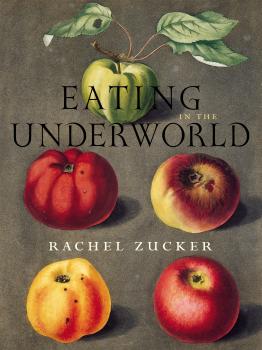Rachel Zucker
Список книг автора Rachel ZuckerSoundMachine
Through heartbreaking, often comic, genre-non-conforming pieces spanning the past 10 years, Rachel Zucker trains her relentless attention on marriage, motherhood, grief, the need to speak, depression, sex, and many other topics. Part poetry, part memoir, part lyric essay—and not limited by any of these categories—<em>SoundMachine </em>is a book written out of the persistent feeling that the human voice is both a meaningless sound and the only way we know we exist.
The Bad Wife Handbook
<P>Rachel Zucker's third book of poems is a darkly comic collection that looks unsparingly at the difficulties and compromises of married life. Formally innovative and blazingly direct, The Bad Wife Handbook cross-examines marriage, motherhood, monogamy, and writing itself. Rachel Zucker's upending of grammatical and syntactic expectations lends these poems an urgent richness and aesthetic complexity that mirrors the puzzles of real life. Candid, subversive, and genuinely moving, The Bad Wife Handbook is an important portrait of contemporary marriage and the writing life, of emotional connection and disconnection, of togetherness and aloneness.</P>
Eating in the Underworld
<P><B>Winner of the Strousse Award fro Best Group of Poems (2002)</B></P><P>In Rachel Zucker's re-imagining of the Greek myth, Persephone is a daughter struggling to become a woman. Unlike the classical portrait of a maiden kidnapped by a tyrant, Zucker's Persephone chooses to travel to the Underworld and assume her role as Hades' queen. Caught between worlds—light and dark, innocence and power, a mother's protection and a lover's appeal—Persephone describes the strangeness of the Underworld and the problems of transformation and transgression. The arrangement of Zucker's poems reflects Persephone's travels between the Underworld and the Surface. Both spare and lyrical, they are written as entries in Persephone's diary and as letters between Persephone, Demeter, and Hades. The language—strange, urgent, direct—is pulled and changed as Persephone journeys from one world to another revealing the struggle of unmaking and remaking the self.</P>


